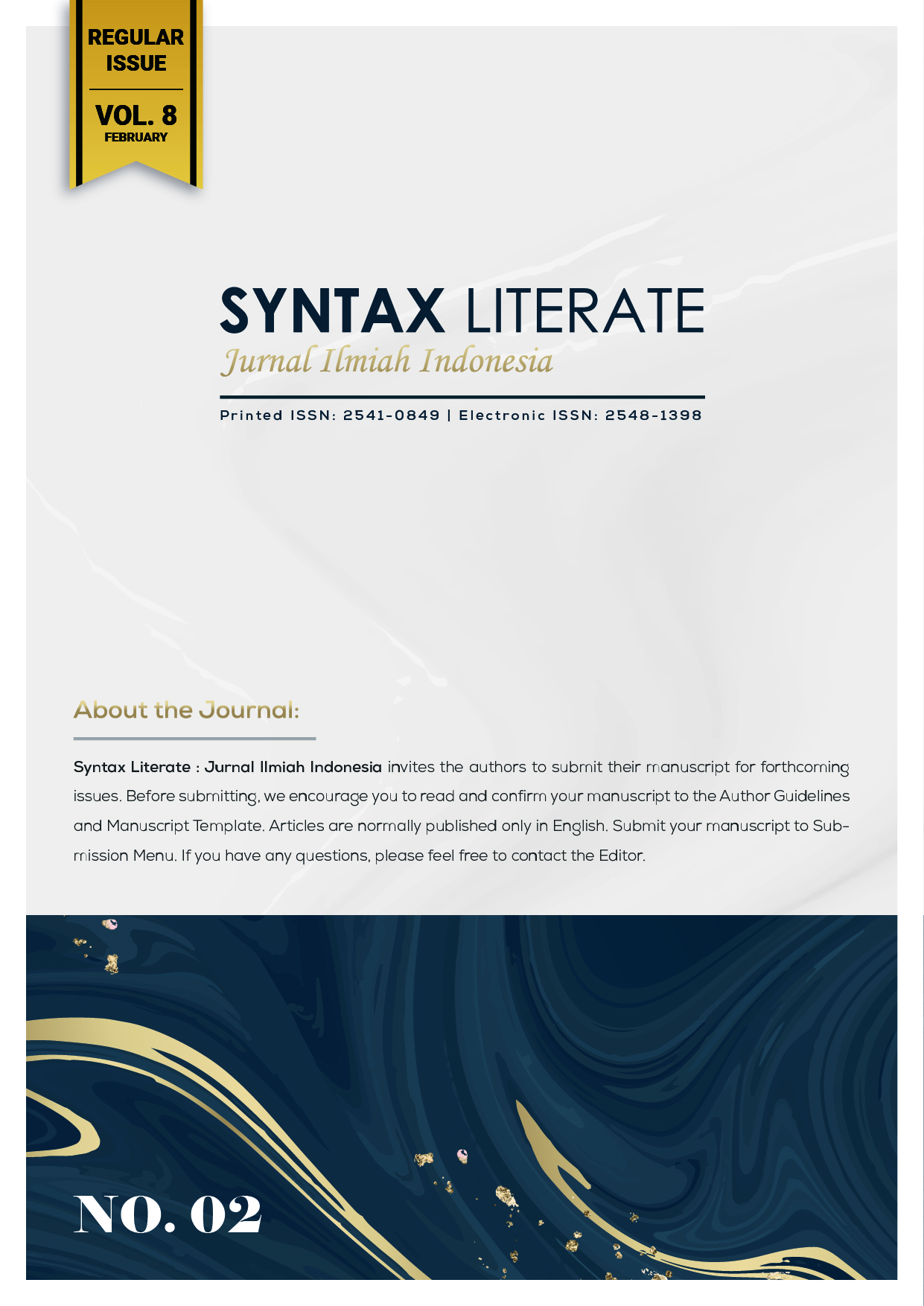Pengaruh Budaya Kaizen Terhadap Kinerja Karyawan Pada Pt Pegadaian (Persero) Area Palembang
Abstract
Employee performance is a description of the company's performance. The factor to improve employee performance is how to create a strong work culture, namely the kaizen culture. Kaizen culture itself is a small improvement in a process that can continuously involve all aspects, namely top management, managers to employees. Kaizen culture proves its success in Japan, thus there will be an opportunity to bring success to companies in Indonesia in implementing it, this study entitled The Effect of Kaizen Culture on Employee Performance at PT Pegadaian Palembang Area. The purpose of this study was to determine the influence of kaizen culture on employee performance. The object of this research is PT Pegadaian Area Palembang with simple random sampling of 36 (thirty six) employees who become respondents. The data analysis technique used simple regression analysis to partially test the effect. The partial test shows that kaisen culture has an influence on employee performance. The results of the study stated that there was a significant influence between kaizen culture on employee performance at PT Pegadaian Area Palembang. Based on the indicators that have been tested, the previous results show that the kaizen culture and after using the kaizen culture have significant differences. There is meaning in using kaizen culture which greatly influences employee performance much better than before using kaizen culture.
Downloads
References
Arikunto, S. (2010). Prosedur Penelitian : Suatu Pendekatan Praktik, Edisi Revisi.
Jakarta: Rineka Cipta.
Bintoro, D., & Daryanto, D. (2017). Manajemen penilaian kinerja karyawan.
Yogyakarta: Gava Media, 15.
Dr. Tubagus Achmad Darojat, M. P. (2015). Pentingnya Budaya Kerja Tinggi & Kuat
Absolute.
Hasibuan, M. S. P. (2005). Manajemen sumber daya manusia edisi revisi. Bumi Aksara,
Jakarta, 288.
Imai, M. (2001). Kaizen: Kunci Sukses Jepang Dalam Persaingan. PPM. Jakarta.
Kusnandar, D. L., & Kurniawan, D. (2018). Literasi Keuangan Dan Gaya Hidup Ibu
Rumah Tangga Dalam Membentuk Perilaku Keuangan Keluarga Di Kota
Tasikmalaya. Sustainable Competitive Advantage (SCA), 8(1).
Mangkunegara, A. A. A. P. (2014). Evaluasi Kinerja Sumber Daya Manusia. Bandung:
Refika Aditama.
Maryam, S., Purwanti, R. S., & Faruk, M. (2020). Pengaruh Budaya Kaizen dan
Disiplin Kerja terhadap Kinerja Pegawai (Suatu Studi pada Kantor Kementerian
Agama Kota Banjar). Business Management and Entrepreneurship Journal, 2(1),
–27.
Osada, T. (2002). Sikap Kerja 5S Seri Manajemen Operasi. Jakarta: PPM.
Ramdhani, A. (2011). Penilaian Kinerja. PT. Sarana Panca Karya Nusa, Bandung.
Rivai, V. (2009). Manajemen sumber daya manusia untuk perusahaan: Dari teori ke
praktik. Rajawali Pers.
Sugiyono, D. (2013). Metode penelitian pendidikan pendekatan kuantitatif, kualitatif
dan R&D. Alfabeta.
Suwondo, C., & ASMI, P. Pp. M. M. I. B. M. (2012). Penerapan budaya kerja unggulan
S (seiri, seiton, seiso, seiketsu, dan shitsuke) di Indonesia. Jurnal Magister
Manajemen, 1(1), 29–48.
Wellington, P. (1995). Kaizen Strategies for Customer Care: How to Create a Powerful
Customer-care Program--and Make it Work. Financial Times Management.
Zebua, Y. (2020). Pengaruh Budaya Kerja Dan Promosi Jabatan Dalam Meningkatkan
Kinerja Karyawan Pada Pt. Perkebunan Nusantara Iii Labuhan Haji Labuhanbatu
Utara. Ecobisma (Jurnal Ekonomi, Bisnis Dan Manajemen), 7(2), 109–124.
Eka Ramadhanty Sibarani
Copyright (c) 2023 Eka Ramadhanty Sibarani, Asmanita

This work is licensed under a Creative Commons Attribution-ShareAlike 4.0 International License.











